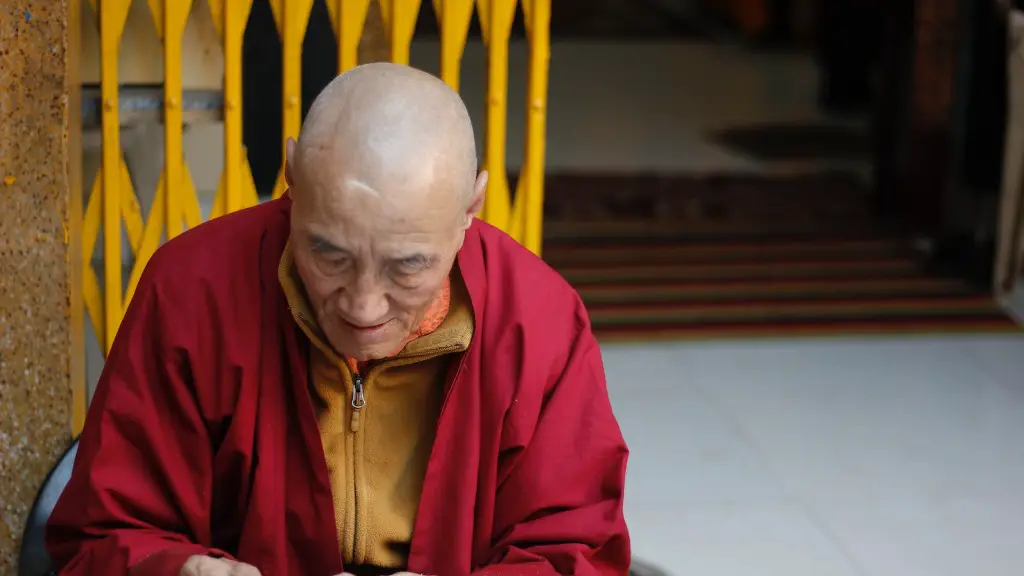Is Hinduism A Ethnic Religion?
Hinduism has been an influential religion for centuries and is still the world’s third largest religion today. It is often used as an example of a ‘religion’ but it is actually the name for a loose collection of beliefs, practices, and teachings that have been passed down through generations of Indians.
So, is Hinduism a ‘religion’? This is a question which can be answered in different ways. On the one hand, Hinduism has distinct religious elements such as scriptures, rituals, metaphysical beliefs and deities, which are common among religious traditions. On the other hand, there is no single creator or central religious authority that defines the practices of Hinduism.
Unlike other faiths, Hinduism is linked with Indian culture and is more of a way of life than a belief system. It is said to be more of an ‘ethic’ rather than an organized religion, where individuals have the freedom to interpret and practice the beliefs according to their own understanding. The emphasis is not on one single spiritual leader, which is often seen in other faith traditions.
Hinduism also does not have a clear-cut set of dogma or teachings, rather, it is a collection of beliefs, values and practices which are open to personal interpretation and evolution. In other words, Hinduism is not based on the teachings of a single spiritual leader or even a single text, but is instead a complex mosaic of traditions, philosophies, and beliefs.
The core of Hinduism revolves around the concepts of Dharma and Karma which are based on the idea of interconnectedness. Dharma is a core principle of Hinduism and it literally translates to “duty” or “law”. This refers to the moral and ethical principles of action which are determined by the unique and different roles of each individual within society.
Karma is likewise an important concept of Hinduism and is the belief that all actions have consequences, both spiritual and physical, and that one’s fate is entwined with the choices one makes in life. It is also believed that by living a life of Dharma and upholding the values of truth, love and justice, one can achieve liberation from the cycle of birth and death.
In conclusion, Hinduism can be considered a ‘religion’, but at the same time it is an ethnically based faith which is linked to Indian culture and values. It is not a single spiritual authority, but a complex system with multiple deities and practices. It emphasizes concepts of Dharma and Karma and the need to adhere to values such as truth, love and justice in order to achieve spiritual attainment.
Significance of Hinduism to India
Hinduism is a religion which is deeply interlinked with the culture and history of India. It has been recognized as the oldest living religion and is said to have originated around 4,000 to 5,000 years ago in the Indian subcontinent. Over the course of time, Hinduism has become one of the most influential forces on Indian culture, and it is estimated that about 80% of the population of India are Hindu.
Hinduism has been at the center of Indian politics since before the formation of modern India. Hinduism is considered the oldest religion in the world, and it is believed to have originated in India. It is also firmly interlinked with Indian culture, with the belief system being intertwined with traditional values and practices. What is more, it is deeply connected with Indian art, literature and architecture.
Hinduism has also been linked to the development of caste-based societies, with the system of division of labor being based on the principles of Dharma and Karma as seen in the Hindu faith. In Hinduism, Dharma is a collective responsibility which involves fulfilling one’s duties and obligations within society, while Karma is the concept of spiritual cause and effect.
Since the inception of Hinduism, it has been a core part of Indian culture and politics. It has inspired generations of leaders, such as Mahatma Gandhi and other freedom fighters who strived for India’s independence. Its principles of Dharma and Karma are still employed in the justice systems of India and its influence in everyday life can be seen in a variety of ways.
Hinduism and Spirituality
Hinduism is often equated with spiritual practice, and indeed, it is widely considered to be one of the most spiritually advanced of the world’s religious traditions. The Hindus believe in a supreme being, the Brahman, who is the source of all life and creation. This being is beyond physical forms and can only be experienced through one’s inner state of mind and spirit. All humanity is said to possess a spark of the divine, and it is the goal of an individual’s spiritual practice to become one with the Brahman.
The path to spirituality in Hinduism is typically referred to as Yoga, with the most well-known form of practice being Raja Yoga. This form of practice encompasses meditation, prayer, and aligning oneself with the divine. Yogic philosophy and practices are designed to cultivate a union between the human mind, body, and soul. This union is known as samadhi, which is the supreme state of consciousness achieved through spiritual practice.
In Hinduism, meditation is a ritual type of mindfulness practice used to focus the mind. It is said to bring peace, clarity, and joy to its practitioners as it enables them to become more aware of their thoughts, emotions, and physical experience. This awareness can lead to higher states of consciousness, ultimately leading to spiritual advancement.
In addition, in Hinduism, prayer is seen as an effective way to gain the protection and power of the divine. Prayers are often said to the different gods and goddesses of the Hindu pantheon as a way to show devotion. By praying, individuals are said to draw nearer to the divine energy and spiritual understanding.
Shrines and Temples of Hinduism
Hinduism is closely associated with the worship of deities in temples and shrines. Most believe that these shrines and temples are inhabited by divine spirits and offer an opportunity for the devotee to connect with the divine. Traditionally, these structures serve as places of reflection and worship and provide an atmosphere to meditate on spiritual questions and to receive answers from the divine.
Hindu temples are usually dedicated to one or more gods or goddesses from the Hindu pantheon. Typically, the structure, architecture and layout of the temple are designed to reflect the spiritual journey towards the divine. The temples are also often decorated with carvings and artisanship, and the atmosphere is usually filled with incense and chanting by devotees.
In addition to temples, Hindus often worship the divine in sacred sites such as the River Ganges and other rivers and lakes, as well as in caves and mountaintops. These natural locations are believed to be imbued with spiritual energy and they provide a space to contemplate and receive guidance from the divine. Pilgrimages to these sacred sites are often seen as an essential part of Hindu spiritual practice.
Hinduism and its Cultural Impact
Hinduism is a religion, but it is also deeply embedded in Indian culture and social life. Hindu festivals, rituals and customs are integral parts of Indian daily life, and the beliefs of Hinduism can be seen in almost every aspect of Indian civilization. Hindu literature, art, music and dance are focused on the praise of the divine, while the holy texts such as the Bhagavad Gita and the Upanishads are central sources of philosophical inspiration and spiritual guidance.
Hinduism has also contributed to the formation of social boundaries and caste-based divisions in India. According to Hindu tradition, one’s fate is based on their Karma, or the spiritual consequences of their actions. This idea of Karma has been used as a way to assign caste or class status and to promote the idea of deservedness in society.
Furthermore, Hinduism has been a source of artistic inspiration in India. Much of the traditional Indian literature, theatre, and art reflects Hindu themes, such as the works of the great poet and writer Tagore. Similarly, Hindu symbols, iconography and rituals have been featured in many popular films, television shows and literature from India.
Hinduism is one of the world’s most influential religions, and it shapes the culture and social landscape of India to this day. Its spiritual practices, rituals, festivals and beliefs have had an immense impact on Indian society, culture and art.
Hinduism and its Influence Beyond India
Despite being an Indian religion in its origins, Hinduism has had an influence beyond its homeland. In recent decades, the teachings and philosophy of Hinduism have been embraced by westerners, becoming a key part of the “New Age” movement in the West. As a result, the practice of Hinduism has become increasingly popular in the West, alongside Indian immigrants and spiritual seekers from Europe, North America and Australia.
In addition, Hindu principles of Dharma, Karma and Yoga have also been adopted by people of other religions. The concepts of Dharma and Karma have been woven into the moral fabric of western civilization, while the practice of yoga remains popular among the general population of many western societies. The influence of these Hindu beliefs can be seen in almost all of the major religions in the world.
Furthermore, Hinduism has also had a major impact on Asian cultures. Many of the spiritual philosophies of Hinduism have been adopted and adapted by Buddhist, Jain and Chinese religions. The ideas of Dharma, Karma and Yoga were also influential in the development of Taoism. In addition, many Hindu gods and goddesses can be found in the pantheons of neighbouring religions such as Jainism, Buddhism and Sikhism.
Hindu beliefs and practices have had an wherever the religion is embraced, with Hindu philosophy providing a unique worldview that has had an immense impact on regional and global culture. Even though the original source of Hindu philosophy comes from India, its influence is felt and seen across the world.




